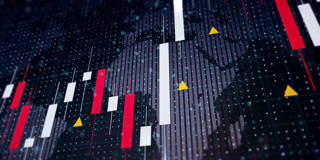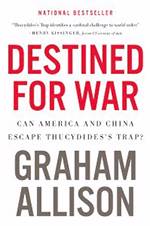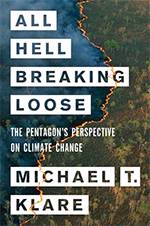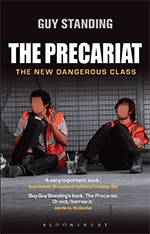OnPoint Subscriber Exclusive

Nouriel Roubini
Says More…
This week, PS talks with Nouriel Roubini, Professor of Economics at New York University's Stern School of Business, Chairman of Roubini Macro Associates, and host of the NourielToday.com broadcast.
Project Syndicate: In August, you wrote that though predictions of the US dollar’s early demise were “greatly exaggerated,” if the US “keeps monetizing large budget deficits….a surge of inflation eventually could debase the dollar and weaken its attractiveness as a reserve currency.” Since then, US Federal Reserve Chair Jerome Powell announced that the central bank would loosen its approach to inflation-targeting and leave interest rates near zero through at least 2023. To what extent does this heighten the risks to the dollar? What about in combination with a second term for US President Donald Trump – a development that may accelerate the “loss of US geopolitical hegemony”?
Nouriel Roubini: I would separate the short-term forces that are likely to weaken the US dollar’s value over the next few years from the longer-term factors that could result in the dollar’s demise as the world’s major reserve currency. The former category does include loose US monetary policy, including the Fed’s move to average-inflation-targeting. It also includes large monetized fiscal deficits, twin current-account and fiscal deficits (with low savings rates), risk-on episodes, continued high COVID-19 infection rates, and weakening growth.
But for the dollar to lose its position as a major reserve currency, there will have to be an alternative ready to supplant it; you cannot replace something with nothing. And there is not yet a clear alternative available. The renminbi will not qualify until China implements more radical – and, in many cases, costly – reforms to internationalize it.
Roubini recommends
We ask all our Say More contributors to tell our readers about a few books that have impressed them recently. Here are Roubini's picks:
-

Destined for War: Can America and China Escape Thucydides’s Trap?
by Graham T. Allison
Recognizing that geopolitical tensions mount whenever a rising power challenges an incumbent power, Allison predicted the current escalating cold war between US and China. In 12 out of 16 historical episodes, such rivalries have led to military conflict. The question is whether the same will happen today, or the two superpowers will be able to manage their rivalry without violence. Allison reminds us that, with sound leadership on both sides, the latter scenario is possible. After all, history is not mechanically determined.
-

All Hell Breaking Loose: The Pentagon’s Perspective on Climate Change
by Michael T. Klare
Even as fires devastate the US West Coast and severe hurricanes ravage the South, Trump and his administration may remain in denial about human-driven climate change. But the US military’s hard-nosed realists and long-term planners have long recognized the reality of the threat it poses to America’s national and economic security. Globally, climate change can lead to mass starvation, failed states, civil wars, mass migrations, and international conflicts – all of which have implications for US national security. Even within the US, climate change can make regions inhospitably hot and flood coastal areas – developments that would threaten thousands of US military bases and assets and wreak massive economic damage. The unsentimental conservatives in the Pentagon are planning accordingly.
-

The Precariat: The New Dangerous Class
by Guy Standing
After the 2008 financial crisis, many firms sought to boost profits by cutting costs, starting with labor costs. Instead of hiring workers on formal employment contracts that provided good wages and benefits, companies embraced part-time, hourly, gig, freelance, and contract work arrangements. They thus created what Standing calls the “Precariat.” This is the contemporary version of Karl Marx’s proletariat: a new class of alienated, insecure workers who are ripe for political radicalization and mobilization. Today, this class is growing once again, because highly leveraged corporations are responding to the COVID-19 crisis as they did after 2008: slashing jobs and labor costs, and then re-hiring some workers in temporary precarious jobs. Together with rising income and wealth inequality, this is a recipe for large-scale social unrest and radical populism.
From the PS Archive
In his October 6 Nouriel Today broadcast, Roubini considers this month’s possible surprises, challenges, and upside/downside risks. Watch the broadcast.
In his September 29 Nouriel Today broadcast – which you can view for free – Roubini assesses the outlook and drivers for asset prices and financial markets for the rest of this year. Watch the broadcast.
Around the web
From 2019
In this PS Long Read, Roubini predicts a full-scale escalation of the US-China conflict, regardless of what either country’s current leader intends. Read more.
From 2017
Roubini describes advanced-country central banks’ dilemmas as GDP growth rises but inflation doesn’t. Read more.